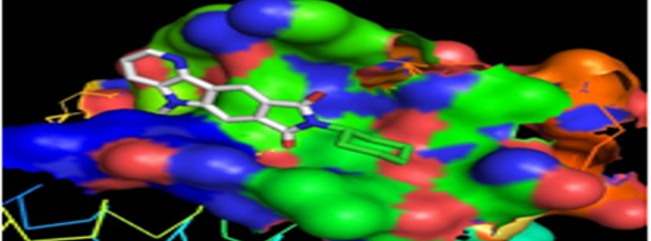Abstract
Recently, the demands on the drug discovery process have increased drastically because of the need to apprehend a novel target which might be both pertinent to cause disease and chemically tractable. The emergence of bioinformatics and computer strategies have given room to analyse conditions at the molecular level. The present work was to perform a molecular docking analysis and ADMET study of different δ-carboline derivatives with bromodomain (BRD4) receptor using receptor-based drug discovery approach. Based on the literature, 60 compounds were designed and subjected to molecular docking for the inhibition of brd4 receptor. The results showed that Compound 34 received the highest binding affinity with BRD4 receptor. Hence eight compounds were selected based on docked pose determined using AutoDock/Vina with the minimal energy of above -5.1. Then ADMET study was carried, in that, all the eight compounds had middle to high BBB permeability. During metabolism, all compounds except compounds 37, 42 and 47 showed no inhibition of CYP2C99 in the liver. Analysis of drug-likeness profile showed almost all compounds eligible in CMC rule, violation rule of CMC, MDDR rule with the value of 1 and violations of WDI showed 0 value. Such findings strongly implied that derivatives of δ-carboline could serve as lead molecules to inhibit BRD4, and this could lead to the future development of the right candidate for cancer research.
Full text article
Authors

This work is licensed under a Creative Commons Attribution-NonCommercial-NoDerivatives 4.0 International License.

